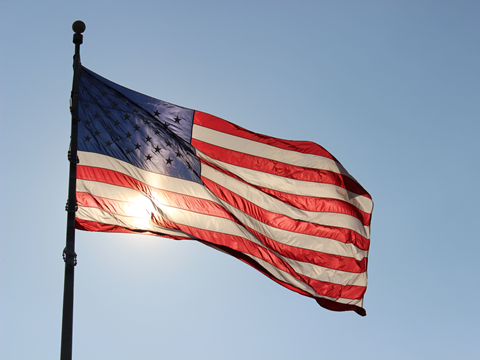
According to Reuters, the United States will support a global treaty to cap and restrict new plastic production, as well a list of controlled chemicals, in what is described as a ‘major policy shift’.
An unnamed source ‘close to U.S. negotiations’ is cited in Reuters’ claims that, in order to avoid a ‘patchwork’ of rules that differ from country to country, the U.S. will now back the creation of international criteria, including lists of harmful chemicals and ‘avoidable’ plastic products.
Reuters explains that the shift will bring the country into closer alignment with EU Member States, South Korea, Canada, Rwanda, Peru, and other ‘high-ambition countries’. Collectively, they have encouraged the introduction of a cap and reduction on plastic production, as well as restrictions on so-called ‘chemicals of concern’.
Countries like China and Saudi Arabia have argued that individual nations should be able to establish their own rules surrounding plastic production; before its shift in policy, the U.S. echoed this stance. Such differences in opinion caused delays at INC-4 in Ottawa back in April, with the so-called ‘Like-Minded Countries’ protesting against production caps in favour downstream measures – improved waste management, redesigning packaging, etc.
Now those in favour of plastic production targets fear that these disagreements over the treaty’s scope will make it difficult to close negotiations at INC-5 in Busan, South Korea later this year. The Bridge to Busan Declaration – signed by the European Union earlier this month – seeks to preserve plastic production targets, although it is currently unclear whether the U.S. will offer its support.
Environmental groups have voiced their ‘cautious’ support for the policy shift, described by Greenpeace as a “watershed moment” in the fight against plastic pollution. Greenpeace USA Ocean’s campaign director, John Hocevar, considers it “a welcome signal that [the government] are finally listening to the demands of the American people.”
However, industry groups have criticized the move. The American Chemistry Council (ACC) argues that the Biden administration has “caved” to environmental groups and, while it supports a global treaty, it does not agree with caps or lists of controlled chemicals.
“With today’s shift in position to support plastic production caps and regulate chemicals via the UN Plastics Agreement, the White House has signalled it is willing to betray U.S. manufacturing and the hundreds of thousands of jobs it supports,” said Chris Jahn, president of the ACC.
INC-5 will be held after the upcoming presidential election on 5th November, in which former President Donald Trump – who previously withdrew the U.S. from the United Nations’ Paris Agreement on climate change – will run against current Vice President Kamala Harris.
The Biden-Harris Administration recently announced that, if elected again, it plans to phase out all single-use plastics across US federal government agencies by 2035 and all single-use plastic products in foodservice, packaging, and events by 2027. It is claimed that this landmark strategy marks the first time the federal government has formally acknowledged the severity of the plastic waste crisis and the large-scale effort needed to combat it.
In other news, a Notice of Intent has been issued by the U.S. Department of Commerce opening a competition for new R&D deliveries to secure and drive domestic capacity for semiconductor advanced packaging. The CHIPS for America programme is expected to award $150 million in federal funding to five R&D areas and leverage private sector investments from industry and academia to support prototype development opportunities.
If you liked this story, you might also enjoy:
How are the top brands progressing on packaging sustainability?
Sustainable Innovation Report 2024: Current trends and future priorities
Reuse vs. single use – which is better for the environment?
The ultimate guide to global plastic sustainability regulation


















No comments yet